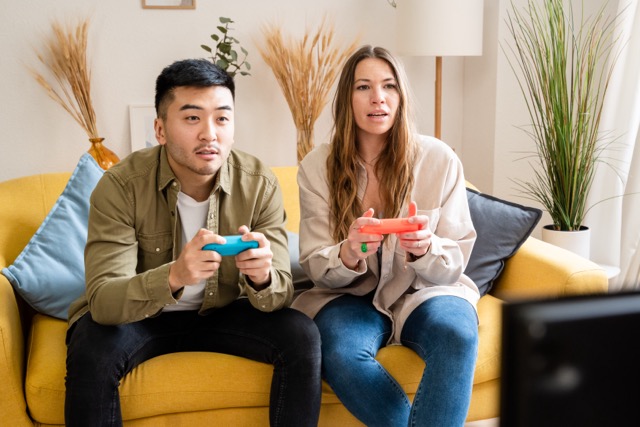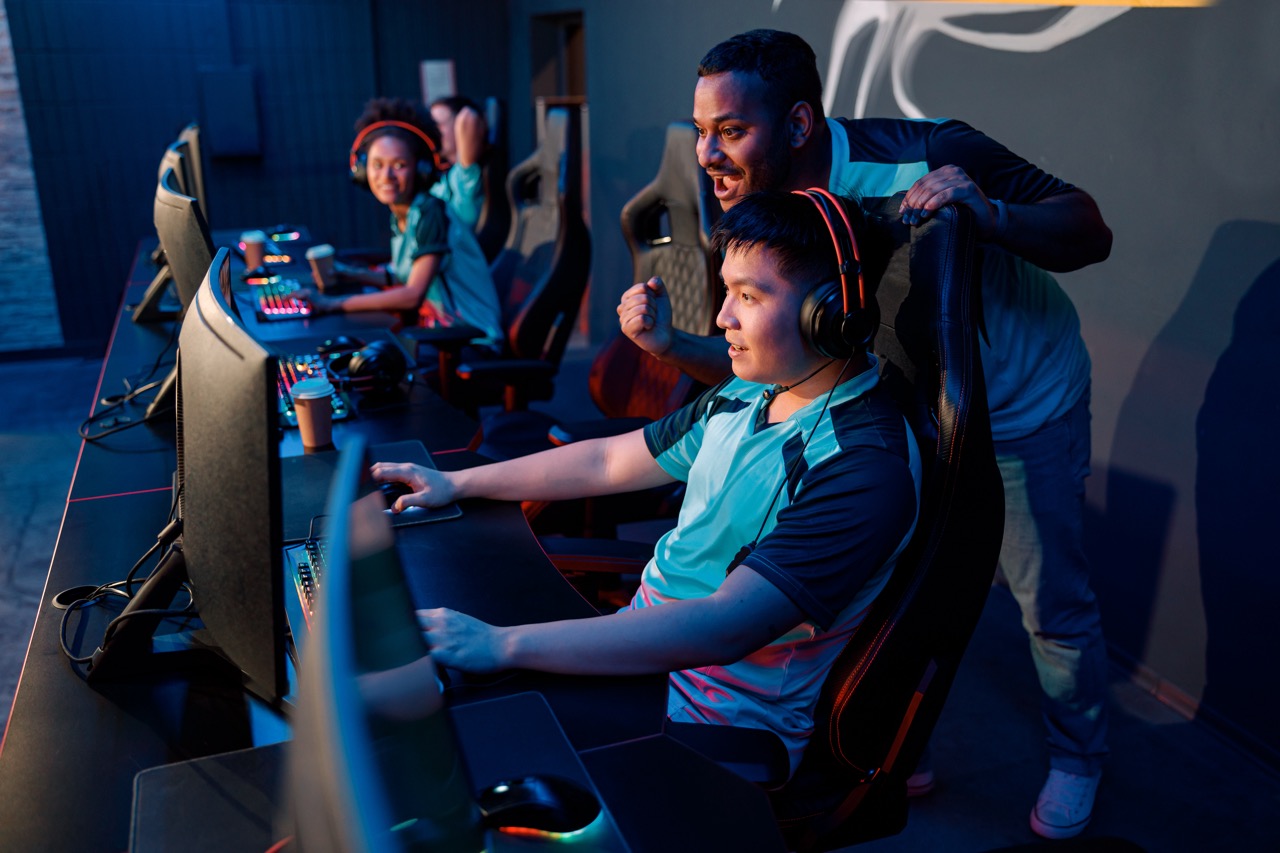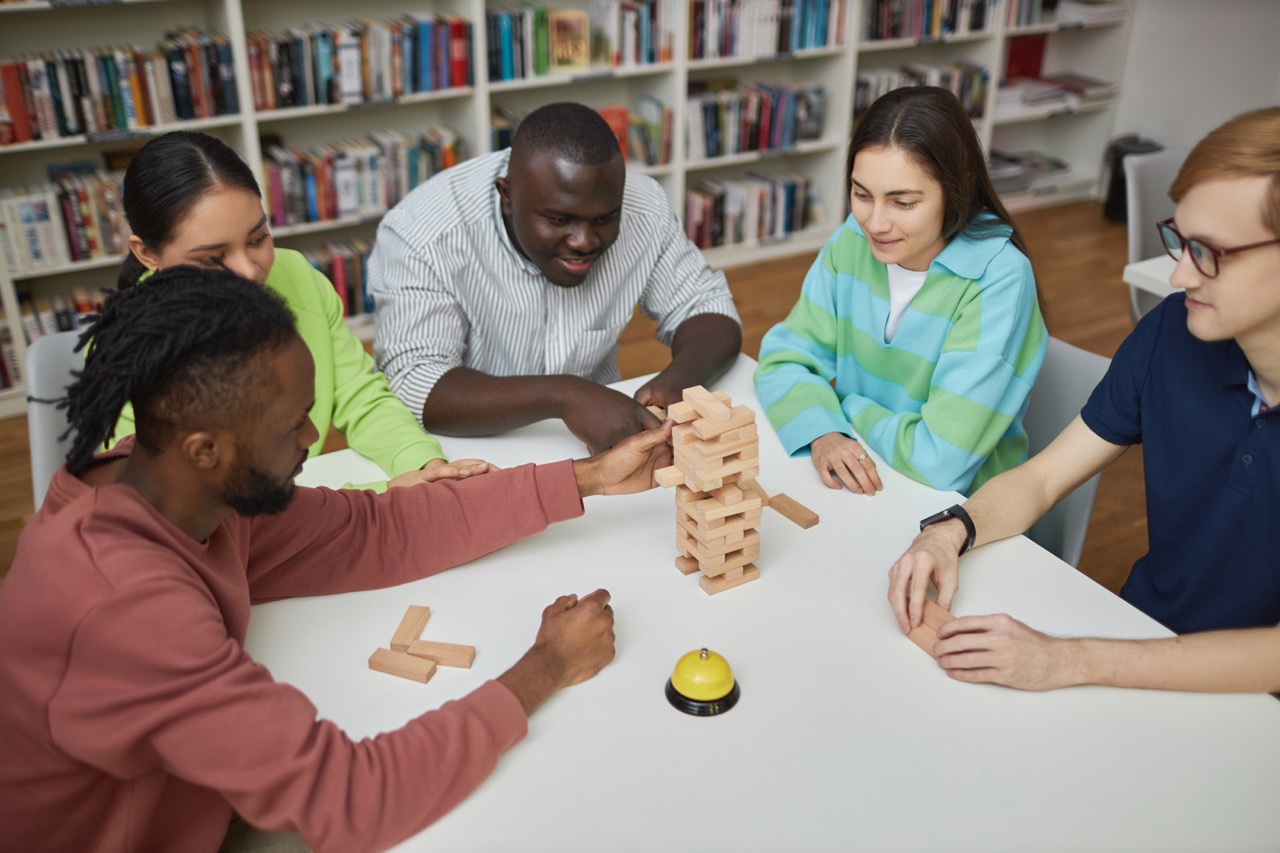Puzzle games have been around for centuries, captivating minds and providing hours of entertainment. From jigsaw puzzles to Sudoku, these engaging challenges do more than just pass the time; they stimulate our brains and offer a plethora of cognitive benefits. In this article, we will explore the many advantages of incorporating puzzle games into your daily routine, from enhancing memory and problem-solving skills to promoting social connections and relieving stress. So, let’s dive in and discover why puzzle games are more than just a fun pastime!
Why Puzzle Games Are a Fun Workout for Your Brain
Puzzle games serve as an excellent workout for your brain, much like how physical exercise strengthens your body. When you solve puzzles, you engage multiple cognitive functions simultaneously—attention, memory, and reasoning all come into play. This multi-tasking is key to maintaining cognitive health as it encourages neural connections and keeps your brain agile. Regularly challenging your mind with puzzles can help stave off cognitive decline as you age, keeping your mental faculties sharp.
Moreover, the variety of puzzle games available means there’s something for everyone. Whether you prefer logic puzzles, word games, or spatial challenges, you can find a game that resonates with you. This diversity keeps the experience fresh and exciting, making it easier to stick with a regular puzzle routine. The enjoyment derived from solving a particularly challenging puzzle can lead to a sense of accomplishment, motivating you to tackle even tougher challenges in the future.
Puzzle games also allow you to set your own pace. Unlike competitive sports, where you might feel pressured to perform, puzzle-solving is a solitary endeavor that encourages self-reflection and personal growth. You can take your time to think through each problem, allowing for deeper analysis and creative thinking. This leisurely approach not only helps build confidence but also enhances your overall cognitive skills over time.
Lastly, the satisfaction that comes from completing a puzzle can’t be overstated. Each solved puzzle provides a dopamine boost that reinforces the desire to keep playing. This intrinsic reward system can lead to a more engaged and active mind. So, the next time you sit down with a puzzle, remember that you’re not just having fun—you’re giving your brain a much-needed workout!
Boost Your Memory Skills with Regular Puzzle Play
Puzzle games are not only entertaining, but they also have been shown to significantly improve memory skills. Engaging with puzzles requires you to remember patterns, sequences, and strategies, all of which work together to enhance your overall memory capacity. Regularly exercising these skills can lead to sharper recall abilities, which are invaluable in everyday life, from remembering where you left your keys to recalling important information at work.
As you tackle various puzzles, you’ll find that your brain is constantly making connections between different pieces of information. This process encourages neuroplasticity—essentially, your brain’s ability to form new neural pathways. The more you challenge yourself, the more proficient your memory becomes, and this can have positive implications for your daily activities. You might find that you can remember names, dates, or even complex concepts more easily after engaging with puzzles regularly.
Furthermore, many puzzle games have a time component that adds an extra layer of memory training. When you race against the clock to complete a crossword or a Sudoku, you’re not only recalling information but doing so under pressure. This added element helps improve your working memory, which is crucial for multitasking and managing daily responsibilities. The practice of recalling information quickly and accurately will seamlessly carry over into other aspects of life, making you more efficient and effective.
Ultimately, the benefits of improved memory skills extend beyond just personal gain; they can positively impact your relationships and career as well. As your memory sharpens, you’ll find yourself more engaged in conversations and better equipped to contribute meaningfully in team settings. So, give your memory a boost by making puzzle games a regular part of your routine!
Enhance Problem-Solving Abilities Through Puzzles
One of the most significant benefits of puzzle games is their ability to enhance problem-solving skills. When faced with a puzzle, you are forced to think critically and creatively to arrive at a solution. The more you practice this type of thinking, the better you become at applying these skills to real-life challenges. Whether you encounter a difficult project at work or a personal dilemma, the strategies you’ve honed while solving puzzles will serve you well.
Puzzle games often require you to think outside the box, encouraging innovative solutions. For instance, a Sudoku puzzle might force you to reconsider how you approach number placement, while a logic puzzle might require you to visualize different scenarios simultaneously. This flexibility in thinking is crucial for effective problem-solving in various aspects of life. As you develop these skills in a low-pressure environment, you build confidence that translates to more complex and high-stakes situations.
Moreover, many puzzle games involve multiple steps or strategies to arrive at a solution. This layered approach encourages players to break down problems into more manageable parts, cultivating a mindset that views challenges as solvable rather than overwhelming. This skill is particularly beneficial in professional settings, where breaking a large project into smaller tasks can lead to increased productivity and success.
Finally, the joy of finally cracking a tough puzzle adds a sense of satisfaction that reinforces your problem-solving prowess. Each solved puzzle is a testament to your skills and adaptability, encouraging you to take on new challenges with enthusiasm. So, if you’re looking to enhance your problem-solving abilities, dive into the world of puzzles and watch your skills flourish!
Puzzles and Stress Relief: A Perfect Match
In today’s fast-paced world, stress relief is more important than ever, and puzzle games offer a delightful escape. Engaging in a puzzle allows you to focus your thoughts and immerse yourself in a different realm, providing a mental break from daily stressors. This distraction can be incredibly beneficial, as it helps to clear your mind and allows you to return to your daily life with renewed energy and perspective.
The repetitive nature of many puzzle games can also have a calming effect. For instance, the rhythmic placement of pieces in a jigsaw puzzle or the systematic approach of solving a crossword can induce a meditative state. This mindfulness can significantly lower stress levels, making puzzles a valuable tool for mental well-being. By concentrating on a single task, you’re not only distracting yourself from stress but actively promoting relaxation.
Additionally, working on puzzles can provide a sense of achievement, which can be particularly helpful during challenging times. Completing a puzzle, no matter how big or small, fills you with a sense of accomplishment that can boost your mood and self-esteem. This positive reinforcement can counteract feelings of stress and anxiety and encourage you to engage in more calming activities.
Lastly, the act of playing puzzles can be a social activity that fosters connections with others. Sharing this experience with friends or family can create a supportive environment where you can relax and unwind together. Whether you’re collaborating on a jigsaw puzzle or competing in a game of Scrabble, these interactions can help alleviate stress and foster a sense of community. So, next time you feel overwhelmed, consider reaching for a puzzle as a fun and effective way to relieve stress!
Social Benefits of Playing Puzzles with Friends
While puzzle games are often seen as solitary endeavors, they can also serve as a fantastic social activity. Playing puzzles with friends or family can foster collaboration and teamwork, as players must communicate and strategize together to solve challenges. This shared experience not only enhances the overall enjoyment of the game but also strengthens relationships and builds connections through shared achievements.
Engaging in puzzle games with others encourages healthy competition and camaraderie. Whether you’re racing against each other to complete a crossword or trying to solve a logic puzzle as a team, these activities can lead to laughter and fun. This light-hearted interaction helps reduce stress and promotes positive social interactions, which are essential for mental well-being.
Moreover, puzzle-solving together can facilitate meaningful conversations. As you work through a challenge, you might find yourselves discussing various topics—anything from personal anecdotes to deeper philosophical questions. This exchange of ideas can enhance your understanding of each other, creating a stronger bond and fostering an atmosphere of openness and trust.
Lastly, participating in puzzle games with friends can even provide opportunities for learning and growth. Sharing tips, techniques, and strategies can help everyone involved improve their skills and knowledge. This collaborative learning environment fosters a sense of community and mutual support, making puzzle games a wonderful way to enhance both personal development and social connections. So, gather your friends and enjoy some quality time while flexing your brain muscles!
How to Get Started with Puzzle Games Today!
Getting started with puzzle games is easy and accessible, as there are countless options available for every taste and skill level. You can find puzzles in various formats, from apps on your smartphone to traditional board games and books filled with brain teasers. Start by exploring different types of puzzles to determine which ones resonate with you the most. This exploration will keep your puzzle-solving experience exciting and engaging!
If you’re new to puzzles, consider beginning with simpler challenges to build your confidence. For instance, start with a 200-piece jigsaw puzzle or a beginner-level Sudoku to ease yourself into the process. As you gain experience and familiarity, you can gradually increase the difficulty level of the puzzles you tackle. This progressive approach will allow you to develop your skills while maintaining a sense of accomplishment.
Joining a local puzzle club or community can also be a great way to immerse yourself in the world of puzzles. Many libraries and community centers host puzzle events where you can meet fellow enthusiasts and share tips and strategies. This social aspect not only enhances the enjoyment of puzzle games but also provides an opportunity to learn from others and make new friends who share your interests.
Lastly, set aside dedicated time in your week to indulge in puzzle games. Whether it’s a quiet evening at home or a fun weekend with friends, making time for puzzles ensures that you reap the cognitive and social benefits they offer. So, don’t hesitate—dive into the world of puzzles and enjoy all the fantastic advantages they have to offer!
In conclusion, puzzle games are much more than just entertaining pastimes; they offer a host of cognitive, social, and emotional benefits that can enhance your overall quality of life










